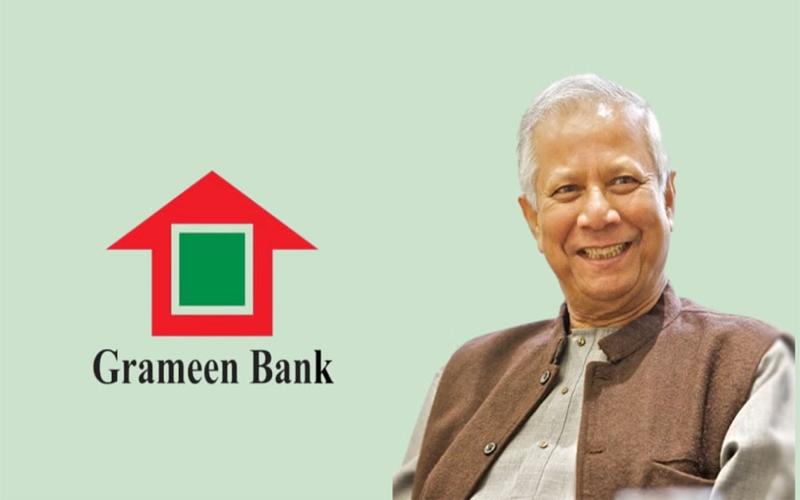- Intimidation or bloodshed cannot halt Bangladesh’s march to democracy |
- Khaleda Zia integral to an important chapter in BD history: Yunus |
- Enthusiasm marks Victory Day celebrations across Bangladesh |
- Dhaka-Delhi ties deep; to be shaped by trust, dignity, mutual respect |
- EU deploys election observation mission to Bangladesh |
Govt to Cut Stake in Grameen Bank to 10 Percent

The advisory council of the interim government has given in-principle approval to a proposed amendment to the Grameen Bank Ordinance, which would reduce the government's stake in the Nobel-winning microcredit institution from 25 percent to just 10 percent.
The proposed amendment, drafted by the Financial Institutions Division (FID), seeks to restore control of the bank to its borrower-beneficiaries, increasing their shareholding from 75 percent to 90 percent. The move is seen as a major step toward reinstating Grameen Bank’s original model, which emphasised member ownership and participation.
The draft ordinance also proposes empowering the beneficiary-members further by allowing them to elect nine board members from among themselves. From these, a three-member panel will be formed to select the chairman—removing the government’s authority to appoint the bank's top official.
At a briefing, Syeda Rizwana Hasan, adviser to the Ministry of Environment, Forests and Climate Change, stated:
"Grameen Bank was founded on values that ensured its members had a voice in its operations. Unfortunately, during the previous government's tenure, this spirit was undermined by excessive state control, politically targeting even the Nobel laureate chief adviser."
The amendment also seeks to broaden the bank’s operational scope to include the destitute population, alongside the landless, at both union and municipal levels.
Grameen Bank, established under the 1983 ordinance, was brought under the Grameen Bank Act, 2013 during the Awami League’s rule. That law increased government control over the institution, including the power to appoint its chairman—sparking widespread criticism. The interim government, formed after the mass uprising that ousted the Awami League in August last year, is now working to roll back many of those changes to revive the bank’s independence.
The draft amendment has been published on the Financial Institutions Division’s website for public review.
The former Awami League government came under scrutiny for its handling of Grameen Bank. In 2011, it forced the resignation of the bank’s founder, Nobel Laureate Professor Muhammad Yunus—now chief adviser to the interim government—on grounds that he had exceeded the retirement age for public servants.
Historically, Grameen Bank's structure gave a 60 percent ownership stake to its members and 40 percent to the government. Over time, the government’s stake was reduced to 25 percent, while the members’ share rose to 75 percent. In practice, by the end of 2010, the bank’s paid-up capital reflected an even wider gap—3.29 percent from the government and 96.71 percent from members—until the state infused additional capital to boost its stake.
In October last year, the interim government also reinstated Grameen Bank’s tax exemption until December 2029. The exemption, in place since the bank’s inception in 1983, was not renewed after 2020 by the previous administration. Grameen Bank’s microcredit activities have long been focused on poverty alleviation, qualifying it for periodic tax relief.

